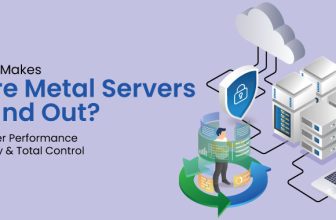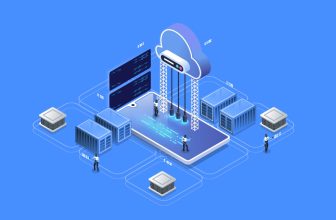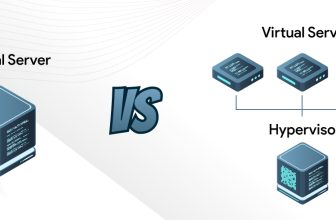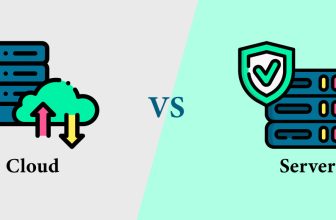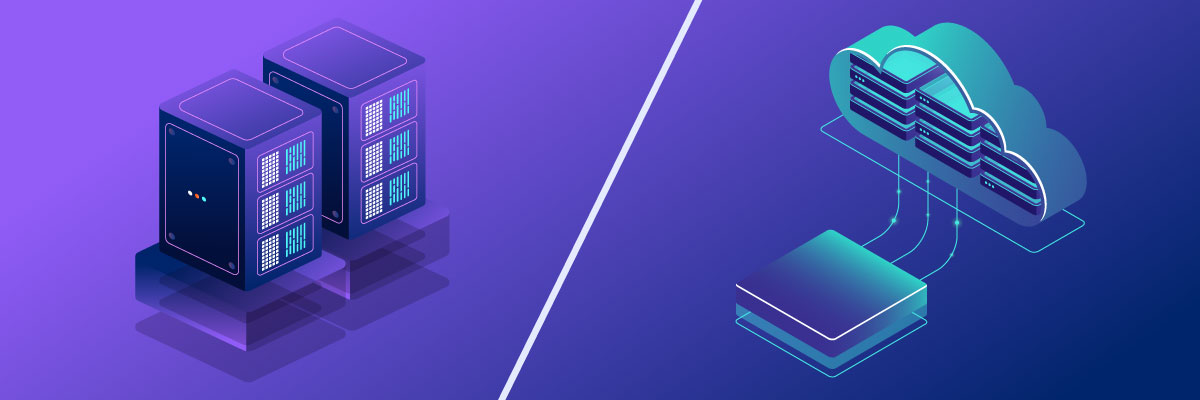
What is the Meaning of Physical and Cloud Servers?
A virtualized computer server is referred to as a “cloud server” because it allows users to use its resources remotely through an internet connection. The functions and operating systems (OSes) supported by cloud based servers are identical to those of traditional physical (and virtual) servers housed in a local data center. Additionally, they can have comparable performance features.
A physical server is a physical computer system that may include one or more CPUs and multiple cores, whether it is used alone or in a network shared by several users. A physical server is only permitted to run one operating system such as Windows, Linux, Solaris, AIX UNIX, or NetWare on the hardware. Mostly, a physical server is used to run a single platform or application.
How Do Physical and Cloud Servers Differ from One Another?
The difference between physical servers and cloud servers is often confusing. Here are some distinctions between physical servers and cloud servers to help with this.
Cloud servers are incredibly adaptable to your needs and can modify anything, but because physical servers need specialized equipment, you are unable to change their configuration.
Cloud services are affordable since we only pay for the resources and assets we use, and we don’t need specialized server management knowledge to use them. On the other hand, physical servers are more expensive because managing them calls for specialized knowledge and top-tier resources.
Customers who use cloud servers have a limited ability to customize the server. Whereas, with physical servers, the customer has complete control over their server and can customize it to suit their needs.
Although cloud servers are quite secure, this does not preclude someone from attacking the server. However, it’s difficult to break the security of a physical server, hackers may only attempt it as a last resort.
What is the Purpose of the Physical Server?
A physical server can be used where large volumes of data need to be processed efficiently. Complete access to dedicated server resources is one of the main advantages of physical servers. This implies that you won’t encounter delayed processing during busy periods.
Moreover, there are no interruptions from other sources on the company-owned server. This makes it possible to allocate resources to particular jobs in order to meet demand, making the entire process considerably more efficient. This makes it possible to speed up internal communications in addition to keeping websites updated and fast.
However, if you need a powerful server, physical servers might take up a lot of space. This means that you are responsible for keeping up the space where they are kept, as well as for any service or repairs that may be necessary—which might be problematic if something goes wrong.
What is the Purpose of the Cloud Server?
In comparison to dedicated physical servers, cloud-based servers allow you to run many OSes simultaneously, maximizing the use of the available hardware and eliminating the need to run separate servers for each OS. One of the main advantages is the lower cost, which is perfect for both SMEs and larger businesses because hosting virtual servers is far less expensive.
Automation of any tasks is one feature of cloud servers that is extremely helpful to businesses. Additionally, it can make repairs considerably simpler by signaling any interruption in automated processes brought on by a malfunction.
The backup and recovery are easier with virtual servers that can switch to another computer if a server happens to fail.
Which is a Suitable Server for My Business: Physical or Cloud Based?
You now have a general understanding of both physical servers and cloud servers. However, in the battle of cloud server vs physical server, it is still challenging to determine which is preferable.
Physical servers are reliable, standalone, simple to use, and safe. However, they are more expensive to buy, manage, update, and expand the physical infrastructure. Cloud servers, in contrast, offer more flexibility, a pay-as-you-go option, quick deployment, and simple migration or failover.
In order to decide between cloud servers and physical servers, you might need to consider which features are most appropriate for your company’s needs. You must be careful to identify the advantages you would obtain using them and the downsides you need to get rid of.
Conclusion
Both physical and cloud servers have their own unique features. High degrees of adaptability, agility, and privacy is provided by the cloud. By choosing a cloud server over a physical server, you are not required to pay more. Even huge firms are moving their online operations to the cloud due to its amazing benefits.



